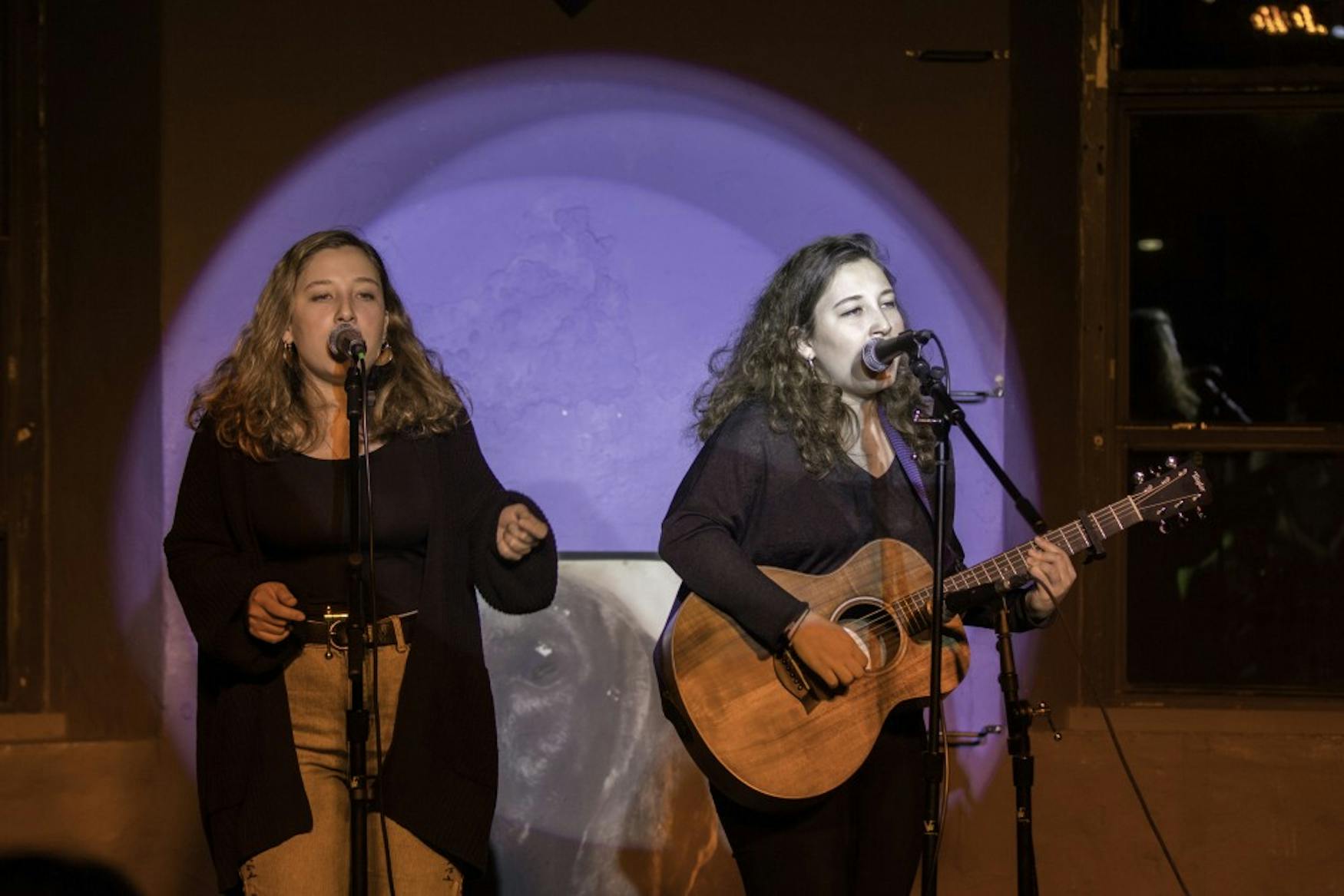Coffeehouse spotlights Jews of color
In diverse environments such as college campuses, with students from all over the world, fostering intersectionality is necessary. Brandeis Hillel aimed to do this by opening an artistic platform for those who identify as Jews of color, Sephardi or Mizrahi to talk about their experiences at Hillel’s Race Talks: Jews of Color Coffeehouse in Cholmondeley’s Thursday evening.
The night was quite short — only about an hour long with five performances, most of them musical. Aviva Davis ’21 passionately sang the song “Hurts” by Mika and explained to the audience afterwards why she chose that piece: Mika, the artist, is a gay Middle Eastern man who grew up in a family that did not accept his identity, and Davis said that she could relate to his story. She talked further about her difficulties growing up as a Jew of color in a community where most Jews did not resemble her. She joked, “I don’t know if you can tell, but I’m brown.” Her story was certainly moving and one that audience members visibly identified with.
After Davis, twins and musical duo Selen and Deniz Amado ’18 wowed the audience with their acoustic covers of three different songs: one in Spanish, one in Turkish and one in English. Their beautiful voices paired together were harmonious perfection. They, too, shared their interesting story: as Sephardic Jews growing up in predominantly Muslim Turkey, they had to practice their religion in secret.
Jose Castellanos ’18 performed a slam poem which expressed the difficulty of not only being Hispanic and Jewish, but of being light-skinned and Hispanic; the slam poem added a nice variety to the coffeehouse.
Ending the night, Noa Iimura ’18, who is Japanese and Jewish, shared a video that showcased his filmmaking ability. The video was not created to directly express his Jewish identity, but for an organization that aims to help and spread awareness about homeless youth, a topic he expressed his passion about.
Though the event went by rather quickly, the coffeehouse was certainly impactful. I appreciated that it allowed Jews of color, a marginalized community, to be placed in the forefront. Events like this celebrate diversity, and I only wish that Hillel had more race talks like this one.
The turnout was perhaps the only disappointing aspect of the event. The performances were so powerful, but only a few members of the Brandeis community came to support their peers. Those who did not attend definitely missed out; perhaps this lack of support is a signifier that Brandeis students should be more involved in engaging with intersectionality on campus.
Furthermore, considering the large Jewish population at Brandeis and the number of people involved in Hillel, a Jewish coffeehouse event should be well-attended. I am left confused as to why there were so few people at an event supporting their own community. However, the diverse set of acts and talent was enjoyable, and I am already anticipating next year’s event.



Please note All comments are eligible for publication in The Justice.